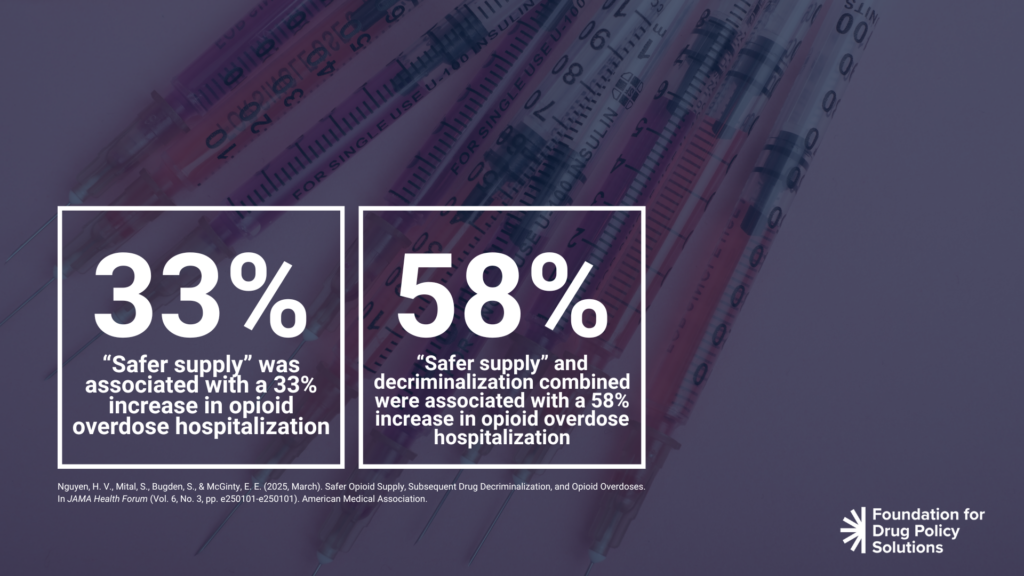
A recent study in JAMA Health Forum found that British Columbia’s experiment with “safer supply” was associated with a statistically significant increase in opioid overdose hospitalizations. It also found that the province’s decriminalization of the possession of illicit drugs was associated with a statistically significant increase in opioid overdose hospitalizations.
The study, led by Dr. Hai Nguyen of Memorial University in Canada, found that the “safer supply” program was associated with a 33% increase in opioid hospitalizations. When “safer supply” was paired with the effects of decriminalization, the combined policy was associated with a 58% increase in opioid hospitalizations. Despite the hopes of the supporters of the program, the policy had failed to reduce the number of opioid overdose deaths.
When interpreting the results, the researchers explained that “diverted safer opioids, which have been increasingly documented, may contribute to an expanded supply of opioids in the illegal market, potentially increasing both supply and demand in unintended ways.” They continued that “this theory posits that more users and suppliers lead to easier access to drugs, increased availability of drug-related information, and lower stigma associated with drug use, all of which attract even more participants to the illegal drug market,” which “could further escalate opioid consumption and overdose incidents.”
In an interview about the study, British Columbia MLA Elenore Sturko, who has been a leading critic of “safer supply”, said, “if you live in British Columbia, you just have to open your eyes and look around you and see what’s happened in community,” adding that “you didn’t need the study to know that we’ve been taking the wrong path here.” British Columbia was the first and only jurisdiction worldwide to implement a “safer supply” program across its entire province.